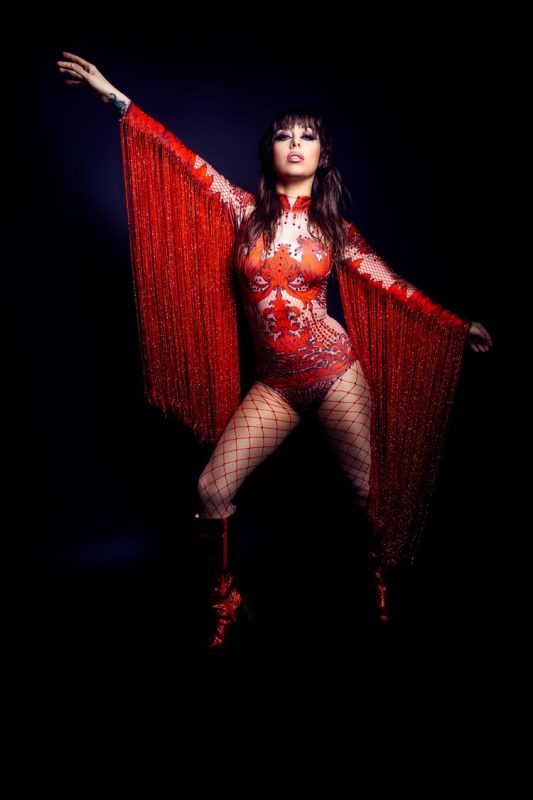Veronica Swift’s new eponymously titled album, her third for Mack Avenue Records, is a masterful coming-out story. On her previous albums, Confessions (2019) and This Bitter Earth (2021), she ascended to the upper echelon of early 21st century jazz singers because of her virtuosic brilliance, interpretive ingenuity, bracing songwriting, and keen arrangements. Simply put, Swift is not only one of the most dazzling singers to emerge in her generation, she’s one of the most versatile.
While her first two albums solidified her position in modern jazz, Veronica Swift shows that she’s more than a jazz singer, exploring French and Italian opera, European classical music, bossa nova, blues, industrial rock, funk, and vaudeville. She pulls the feat off without the results sounding callow or pastiche. Swift’s expansive artistic voice remains firmly intact regardless of genre.
Swift describes this personal artistic statement on her new album as “transgenre.” “I grew up immersed in the culture of jazz music, blessed to have had some of the greats as mentors, and I felt a deep familial duty to uphold that” she says, reflecting on her parents – jazz singer and educator, Stephanie Nakasian, and bebop pianist, Hod O’Brien.
“But as rooted in jazz as I’ve been, there’s a uniquely visceral power in rock and soul music that’s always fueled my creative passion, and rather than mask or confine that part of my identity, the people I admire most show themselves unabashedly and that’s the kind of tradition I want to be a part of.
Swift first gained major international attention in 2015 when she won second place in the Thelonious Monk Institute of Jazz International Vocals Competition. Four years later, Mack Avenue Records released her acclaimed album Confessions when she was only 25 years old. She demonstrated her flair for conceptual song cycles on her follow-up album, This Bitter Earth, which not only gave glimpses of her rock influences but thematically touched upon some of the harder truths of being a woman, particularly when it comes to domestic abuse.
Swift says that for her new album she’d been exploring her “transgenre” concept for about two-and-half years. During the Covid-19 pandemic, she strategized the unveiling of this more artistically naked version of herself to the public while being mindful of how conservative the mainstream jazz industry can be.
She forged and refined most of the material for Veronica Swift on the road. Much to her delight, audiences enthusiastically welcomed the new direction. “My live concerts have been the experiment by which I am seeing the readiness of the audience to embrace the full scope of who I am, and it’s encouraging to know I can continue to push myself creatively and invite people into the fold along the way.”




